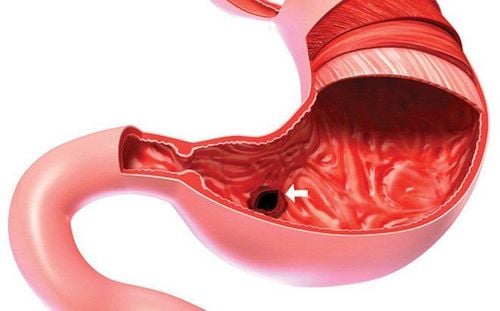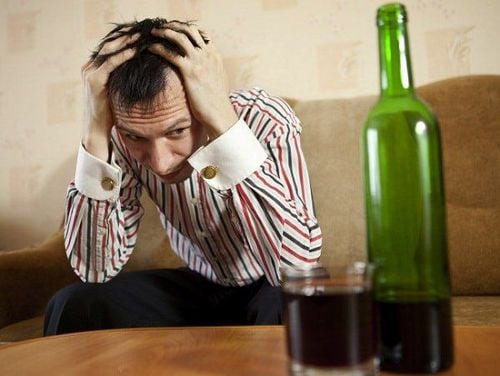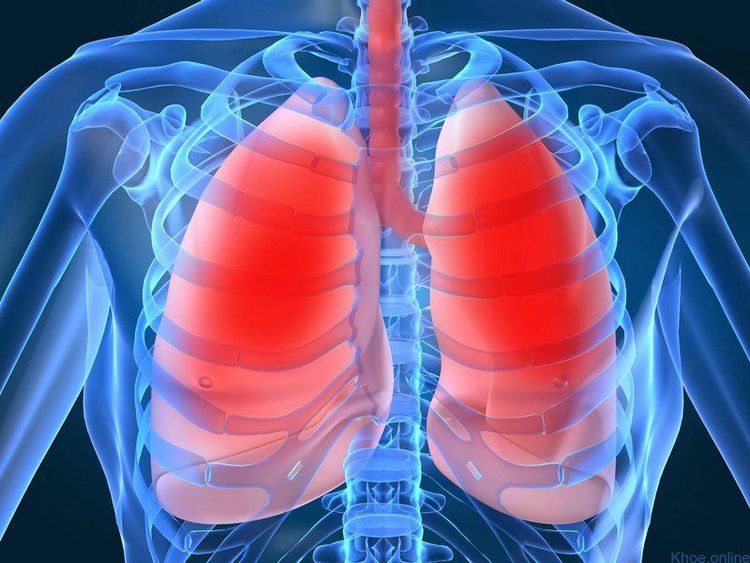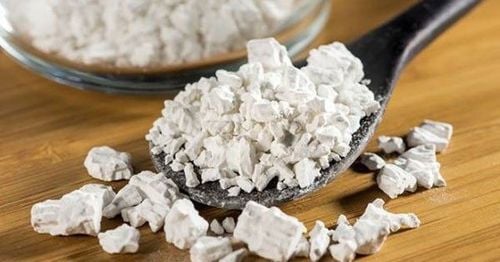Vomiting is a good response of the body to remove toxins metabolized from alcohol from the body. However, excessive vomiting can cause dehydration, causing serious complications if not replenished with water in time.
1. Vomiting after getting drunk; what causes?
Vomiting is the body's natural way to remove harmful substances. When alcohol enters the body, it is converted by the liver into acetaldehyde, a toxic substance. Then, acetaldehyde is converted into acetate, then into water and carbon dioxide, and removed from the body.
The liver can only process a certain amount of acetaldehyde. If the acetaldehyde level is higher than the liver can handle, the body will react by vomiting to remove excess chemicals. Accordingly, drinking too much alcohol can be the cause of vomiting after drinking alcohol. According to the National Institute on Alcohol Abuse and Alcoholism (NIAAA), binge drinking is when a woman or man drinks about 4-5 drinks in 2 hours.
The following factors can also cause people to have headaches and nausea after drinking alcohol:
1.1. Gastritis

Drinking alcohol can cause the stomach to produce more acid than usual. The buildup of acid can irritate the lining of the stomach, leading to inflammation known as gastritis and causing:
- Abdominal pain
- Vomiting
- Diarrhea
- Stomach bleeding
1.2. Alcoholic ketoacidosis
Another possible cause of vomiting after drinking alcohol is alcoholic ketoacidosis (AKA). AKA often occurs in people with alcoholism. After drinking alcohol, people with AKA often cannot tolerate food for 1-3 days.
People with AKA may experience persistent vomiting and stomach pain. The condition can be life-threatening if not treated promptly. Therefore, it is necessary to seek medical attention immediately if the patient suspects the condition.
1.3. Alcohol poisoning
Alcohol poisoning is another possible cause of death from vomiting after drinking alcohol. It occurs when a large amount of alcohol is consumed in a short period.
According to the NIAAA, signs and symptoms of alcohol poisoning include:

- Mental Disorders
- Decreased Consciousness or Inability to Awaken
- Vomiting
- Seizures
- Slow Breathing, That is, Less Than 8 Breaths/Minute
- Irregular Breathing, 10 Seconds or More Between Breaths
- Slow Heart Rate
- Rough Skin
- Slow Responses
- No Gag Reflex
- Extremely Low Body Temperature
- Pale or Pale Skin
If anyone sees someone who has been drinking with any of the above symptoms, they should call 911 immediately.
1.4. Mixing Alcohol with Other Substances
Drinking alcohol with other medications, such as prescription, non-prescription, and illegal drugs, can be very dangerous. Alcohol can increase the side effects of some medications, such as drowsiness and dizziness. Some other medications can cause the following reactions when combined with alcohol:
- Nausea, vomiting
- Headache
- Fainting
- Loss of coordination
According to the NIAAA, mixing certain medications with alcohol can increase the risk of internal bleeding, heart problems, and difficulty breathing. Therefore, people should read the full information on the drug product, including the warnings about alcohol. Cocaine and heroin can cause serious health effects, even death, when mixed with alcohol.
2. Does prolonged vomiting cause dangerous complications?

Family members should monitor people who vomit after drinking alcohol. If they detect the following signs, they should take the patient to the hospital immediately:
- Continuous vomiting for more than 24 hours
- Unable to stop vomiting
- Signs of dehydration such as dizziness, dark urine or not being able to urinate for a while
- Blood in vomit
- Difficulty breathing
- A temperature higher than 38.5°C
Dehydration can lead to a number of health problems in the body. That is why you should seek treatment sooner if you have signs of dehydration.
3. Should you force yourself to vomit after a night of drinking?
Forcing yourself to vomit after a night of drinking can irritate the esophagus. Grabbing your throat can tear the esophagus, causing bleeding. It also increases the risk of acid reflux, damaging teeth, and refluxing into the lungs. Therefore, it is best to let the vomiting process happen naturally.
Frequent vomiting can cause complications such as:
- Electrolyte imbalance
- Stomach and esophageal ulcers
- Throat damage
- Tooth decay
- Dehydration
4. Complications of vomiting after drinking

One of the most significant complications is dehydration. It affects the body's ability to function and can even damage the kidneys. In this case, giving the drunk person small sips of water helps prevent dehydration. Other potential, but rarer complications of vomiting after drinking alcohol include:
- Damage to the lining of the stomach or esophagus
- Gastrointestinal bleeding due to irritation or tearing of the lining of the esophagus
- Aspiration of vomit into the lungs, which can lead to pneumonia
5. Remedies and treatments to sober up after drinking alcohol
Commonly used remedies to sober up after drinking alcohol, such as drinking coffee and taking cold showers, can do more harm than good. Caffeine can further dehydrate a person who is already dehydrated from alcohol. If the person is drunk, their ability to maintain balance may be impaired, so walking can lead to accidents and serious injuries. Alcohol lowers body temperature, so taking a cold shower can lower it even more, increasing the risk of hypothermia.
The best thing a person can do to reduce the effects of alcohol is to drink in moderation or abstain completely. Drinking no more than 14 units of alcohol per week can help reduce the risks associated with drinking. Eating a carbohydrate-rich meal before drinking alcohol can help slow the rate of alcohol absorption. Drinking water or soda between alcoholic drinks can also reduce the effects of alcohol.
Vomiting after drinking alcohol is a positive reaction of the body to eliminate toxins. However, if vomiting is difficult to control, it can lead to dangerous complications such as dehydration, affecting the nervous system and many other organs. Therefore, depending on the patient's condition, relatives need to take the patient to the hospital for examination and treatment as soon as possible.
Vinmec International Hospital is an address for examination, treatment, and prevention of diseases. When performing the examination process at Vinmec, customers will be welcomed and use modern facilities and machinery systems along with perfect medical services under the guidance and consultation of experienced doctors, trained both domestically and internationally.
Please dial HOTLINE for more information or register for an appointment HERE. Download MyVinmec app to make appointments faster and to manage your bookings easily.
References: healthline.com, medicalnewstoday.com













